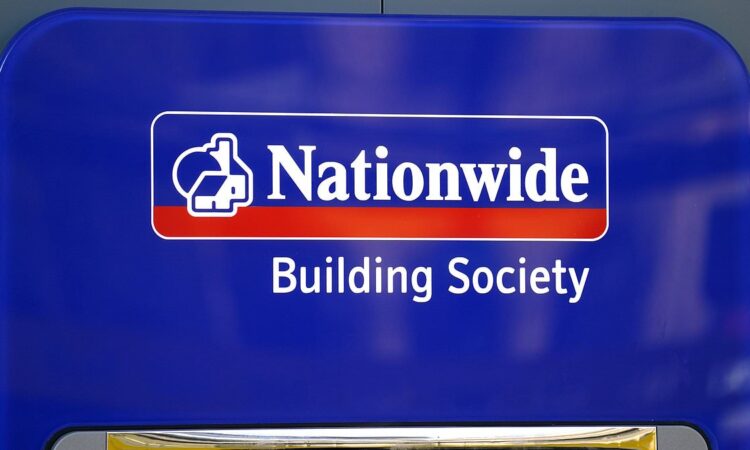
The biggest immediate winner from Nationwide’s £2.9billion offer for Virgin Money will be Sir Richard Branson.
His share stake in the bank, together with the brand licence fee, is reckoned to be worth at least £650million.
As cheering as it might be to see the man often voted as Britain’s most popular business person rewarded, Nationwide members including this writer, might want to question whether this is the best use of resources.
As with many firms in the financial sector, Nationwide has been a beneficiary of a 5.25 per cent Bank of England base rate.
Banks and building societies win in three ways. It offers an opportunity to widen the interest rate margin represented by the gap between what it pays depositors and charges made to borrowers.
There is a windfall from current account or low interest savings account funds which can be placed in the money markets at a higher rate. And surplus funds can be placed with the Bank overnight and capture bank rate.
All of this has been terrific for the banks which have been able to soft-soap shareholders through share buybacks and higher dividends. As a mutual, Nationwide doesn’t do direct distributions.
Instead, it has delivered mutual benefits by offering better mortgage deals, bonuses for savers and last year 3.4million members received a ‘fairer share’ of £100.
The good times also mean that chief executive Debbie Crosbie has been able to invest in a modern rebranding and has made a sacred promise to put a hold on any branch closures until 2026.
Clearly all of this shows the value of mutuality. But there are serious questions to be asked as to whether digging into reserves technically owned by members to buy another bank – one which the chief executive knows well from her previous roles – is a great use of members’ money.
Related Articles
HOW THIS IS MONEY CAN HELP
Certainly, they deserve a clear justification as to the benefits.
Arguably at a time when household budgets are under stress they might prefer another fairer share distribution or a discount on their home loan charges.
In a letter to members, chairman Kevin Parry (also a non-executive at Daily Mail-owner DMGT) notes that Nationwide grew to become the UK’s largest building society by successfully acquiring and integrating more than 250 other organisations in its 140-year history.
Indeed, in the aftermath of the great financial crisis it honourably became a rescuer of last resort for building societies in difficulty.
Virgin Money is different. It is a publicly quoted company that has been run on a very different basis.
It will sit side by side with Nationwide for the next several years before full integration. Members should at the very least be consulted – via town meetings or some other such device – as to whether the transaction is in their best interest.
If the mutual legacy is in danger of being diluted, a member vote might be the most democratic way to proceed.
Not all transactions conducted by mutuals have proven in the best interest of members.
The 2009 merger of the Co-operative Bank and Britannia Building Society turned out to be a disaster for all those involved including advisers on the deal.
The effort by Liverpool Victoria, LV, to sell itself to private outfit Bain Capital in 2021 was turned back by members after a sustained campaign by this paper.
All the indications suggest that Crosbie and the Nationwide board are making a shrewd purchase.
Yet given Virgin Money’s history as a bank built on agglomeration, members need to be reassured that the due diligence is thorough.
Too many mistakes have been made in past financial mergers.
Who can forget the disaster of Bank of Scotland and Halifax and vanishing shareholder value?
History demands great care and attention. After all, it is members’ funds, dating back to Nationwide’s beginnings in 1884, which are at stake.
Some links in this article may be affiliate links. If you click on them we may earn a small commission. That helps us fund This Is Money, and keep it free to use. We do not write articles to promote products. We do not allow any commercial relationship to affect our editorial independence.





